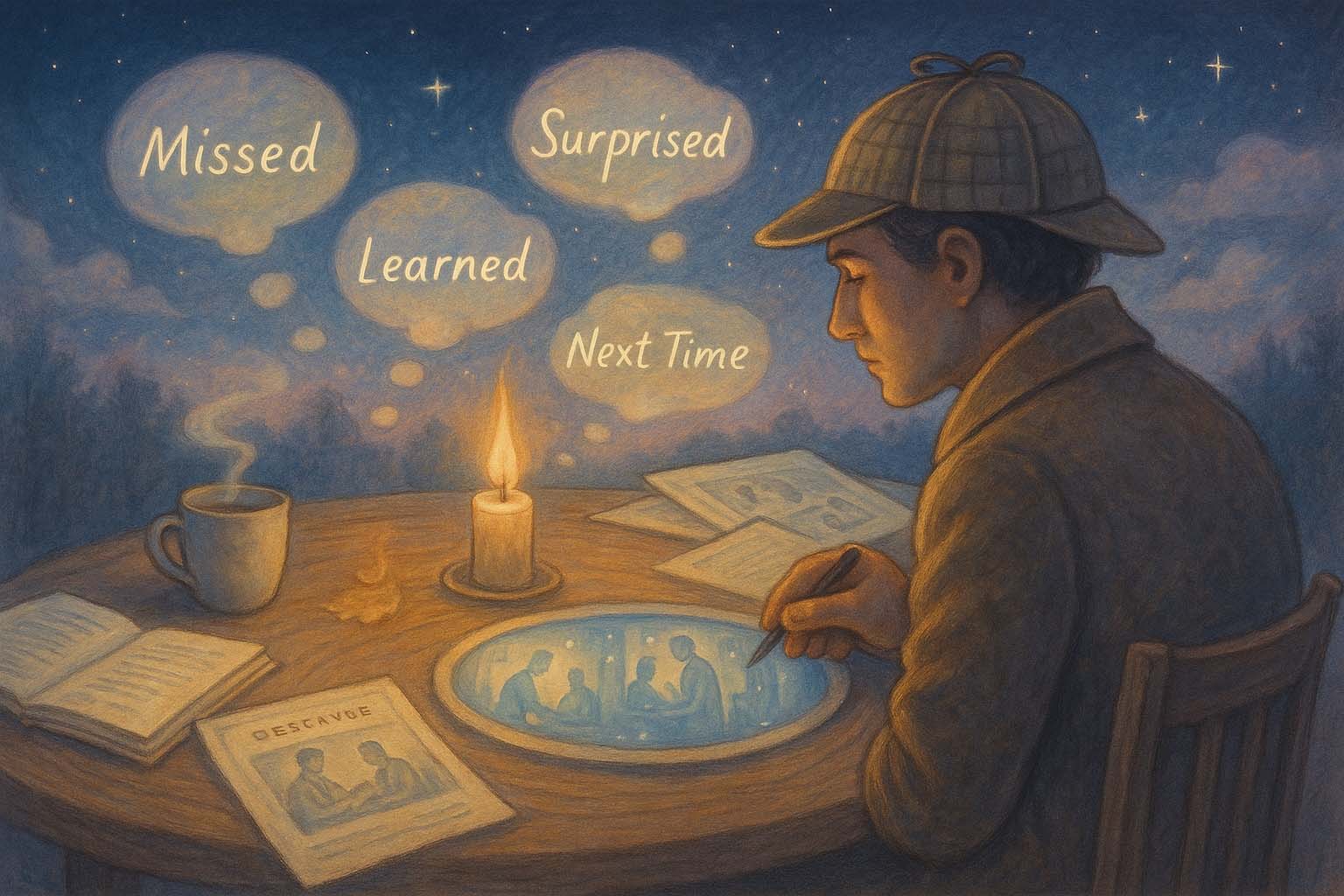
Debrief
- Reflect, Rewind, Revisit
🔁 The Detective’s Debrief
How Great Doctors—and Great Detectives—Grow from Every Case
The case is closed.
The chart is written.
The patient has been treated, stabilised, or sent home.
But the work of the clinical detective is far from over.
Every great sleuth knows: solving the mystery is only part of the story. What comes next is just as important—the debrief.
🕵️ What Is a Debrief?
A debrief is where you pause, review, and reflect. It’s where you ask:
- What went well?
- What nearly went wrong?
- What did I miss?
- What surprised me?
- What would I do differently next time?
For detectives, this is when they revisit the scene, interview their team, and pull apart the process—not to criticise, but to refine. For doctors, it’s the same. A case closed is a case worth learning from.
🧠 Why Reflection Matters in Medicine
Medicine moves fast. But learning happens in the spaces between. If you don’t stop to think about how a case unfolded, you risk repeating blind spots or missing quiet lessons.
Reflective practice teaches you to:
- Notice your thinking patterns
- Catch cognitive biases before they harden
- Learn from uncertainty instead of fearing it
- Build clinical judgment one insight at a time
- Stay grounded in empathy, humility, and growth
As Sherlock Holmes might say:
“It is a mistake to confound strangeness with mystery.”
Only through reflection do you see which parts of a case were truly mysterious—and which were simply misunderstood.
🧩 How to Run a Detective-Style Debrief
Whether you’re working alone, with a tutor, or in a group, try this approach:
🪞 1. Reconstruct the Case
Tell it back to yourself like a story.
Who was the patient? What was the context? How did it unfold?
Don’t just recite the notes—re-live the sequence. This helps clarify the chronology and decision points.
🔦 2. Identify the Turning Points
What clues changed your thinking?
Where did your diagnosis shift?
Which test confirmed—or contradicted—your theory?
🎯 3. Check Your Biases
Did you anchor too early?
Were you overly swayed by one symptom or story?
Did you overlook something because it didn’t fit your first hypothesis?
🤝 4. Reflect on Communication
Did you build rapport?
Did you explain things clearly?
How did the patient respond emotionally—and did you notice?
📚 5. Extract the Learning
What will you remember from this case next time?
Which guideline, red flag, or rare condition now lives sharper in your mind?
🔄 Real Growth Is Iterative
Like any great detective, you won’t solve every case cleanly. Sometimes you’ll make a misstep. Miss a clue. Doubt yourself.
That’s not failure. That’s training.
Clinical confidence doesn’t come from being right all the time.
It comes from being willing to learn every time.
🕯️ Final Word from Medlock
Medicine is not a one-time mystery. It is a lifelong investigation.
And with every case you close—if you take the time to reflect—you become a more agile, aware, and compassionate detective of the human condition.
So revisit your cases. Review your reasoning. Rewrite your assumptions.
Because in medicine, the next mystery is already walking through the door.
🕵️ The detective never stops learning. Neither should you.
